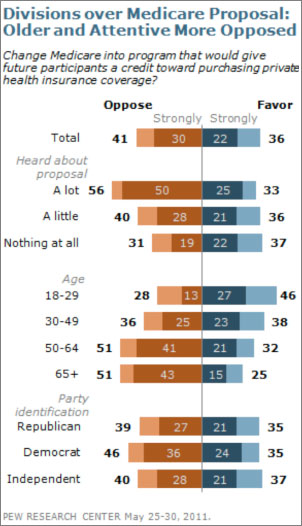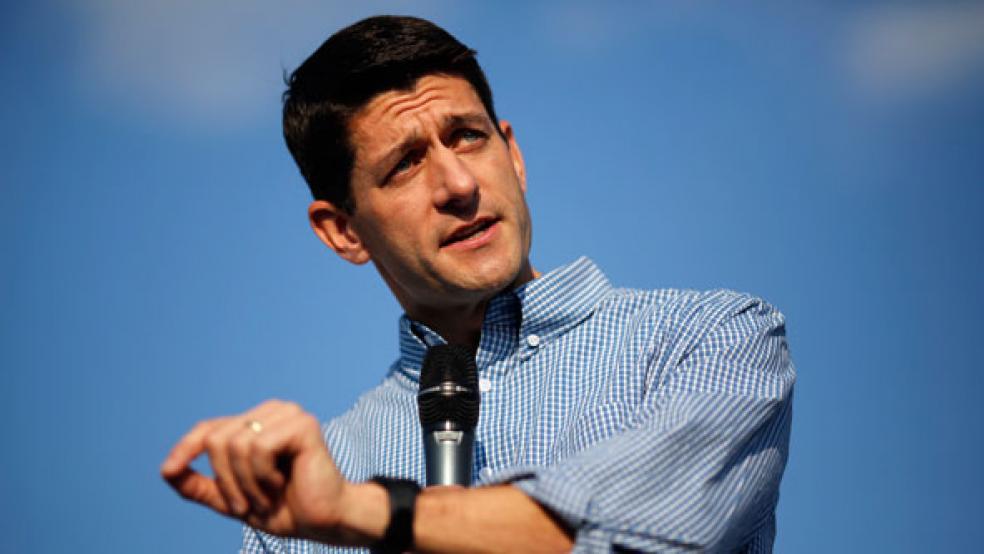Last week, I had a day all pundits dread—I made a confident prediction that Mitt Romney would not choose Paul Ryan as his running mate. Less than 24 hours later, he did exactly that.

Obviously, my expectation was wrong, but that doesn’t mean that my reasoning was. In the week since my column appeared, I have yet to hear a compelling rationale for Romney’s decision. While it has energized one wing of the GOP—economic conservatives and libertarians—he already had every one of them in his pocket before choosing Ryan.
At the same time, Romney has made it harder for religious conservatives primarily concerned about social issues such as gay marriage to have any enthusiasm for him. They were already skittish about the prospect of having a Mormon as president; adding a Catholic admirer of the atheist Ayn Rand to the ticket has made matters worse, from their point of view.
Most Christians in the U.S. are Protestants, and almost all fundamentalists are. They may not say so publicly, but many are distressed that Romney-Ryan is the first presidential ticket of a major American political party without a Protestant Christian on it in American history. At a minimum, this is going to affect the enthusiasm of fundamentalists for Republicans this year.
Ryan’s well-known admiration for Rand clearly doesn’t help. Author of the dystopian novel “Atlas Shrugged,” she believed that all government welfare programs such as Medicare were immoral. Notwithstanding the fact that she took Medicare benefits when she became eligible, it’s hard not to see Ryan’s obsession with slashing Medicare as motivated in part by Rand’s philosophy.
In 2005, Ryan spoke to the Atlas Society, an organization dedicated to glorifying Rand and promoting her philosophy. Here’s what Ryan said on that occasion:
I just want to speak to you a little bit about Ayn Rand and what she meant to me in my life and the fight we’re engaged here in Congress….I grew up reading Ayn Rand and it taught me quite a bit about who I am and what my value systems are, and what my beliefs are. It’s inspired me so much that it’s required reading in my office for all my interns and my staff. We start with “Atlas Shrugged”….
But the reason I got involved in public service, by and large, if I had to credit one thinker, one person, it would be Ayn Rand….In almost every fight we are involved in here, on Capitol Hill, whether it’s an amendment vote that I’ll take later on this afternoon, or a big piece of policy we’re putting through our Ways and Means Committee, it is a fight that usually comes down to one conflict: individualism vs. collectivism.
The biggest long-term savings in Ryan’s famous budget plan, which every Republican in the House of Representatives voted for in 2011 and 2012, comes from Medicare. The plan has evolved over the years, but its core has always been that Medicare costs should be controlled solely on the demand side. There would simply be less money available for each beneficiary to pay for health care. Ryan believes—hopes, really—that somehow or other the free market will provide the same health care at lower cost than the current Medicare system now provides.
Liberal critics often note that it is not necessary to cut Medicare as severely as Ryan does to balance the budget because he would also cut taxes sharply as well as increasing defense spending. A plan that was focused primarily on reducing the deficit would do neither of those things.
Meanwhile, conservative critics, such as Reagan OMB director David Stockman, point to the fact that Ryan would not cut a penny from Medicare for 10 years after his plan took effect because he would grandfather in all beneficiaries and potential beneficiaries age 55 and older. This is obviously just a ploy to politically neutralize the elderly, who, according to Pew polling, overwhelmingly oppose the Ryan plan.

To my knowledge, Ryan has never explained how he would prevent Congress from simply delaying implementation of his plan the day today’s youngest 54-year-old turns 65. It’s worth recalling that in 1997, Congress enacted a bill to control Medicare costs by holding their growth to a “sustainable” rate. But almost as soon as it took effect, Congress suspended it and has continued to suspend it every year since.
I believe Ryan’s purpose in changing Medicare as we know it today is motivated more by a desire to reshape the relationship between Americans and their government along Randian lines than simply getting the budget under control, as he insists.
Another awkwardness for Romney in putting Ryan on his ticket is that Ryan would keep the $700 billion in Medicare cuts enacted in 2009 that help finance the Affordable Care Act. On “Meet the Press” on Aug. 12, Republican National Committee chairman Reince Priebus attacked Barack Obama for these cuts, saying, “He stole $700 billion out of Medicare.”
Ryan quickly repudiated his own plan and now says that Obama “raided” Medicare. But at least Obama paid for his plan. The Republican Medicare Part D program, which was enacted in 2003 with Ryan’s vote, was a pure give-away that already has added $272 billion to the deficit since 2006, according to the Congressional Budget Office.
Whatever one thinks of Ryan and his budget plan, these are serious political liabilities, which is why Republican political pros think Romney’s decision to put him on the ticket is a disaster. Some are now warning that Ryan is going to drag down Republican House and Senate candidates as well when Democrats begin tying them to support for his Medicare plan.
Romney says he has his own plan to save Medicare, but his own web site still compared it favorable to Ryan’s plan as of yesterday. Whether he likes it or not, Medicare is likely to become the primary issue in this campaign—Democrats will see to that. At a minimum, this will deflect attention from the economy, which is Romney’s best issue. That can’t be good for him.






